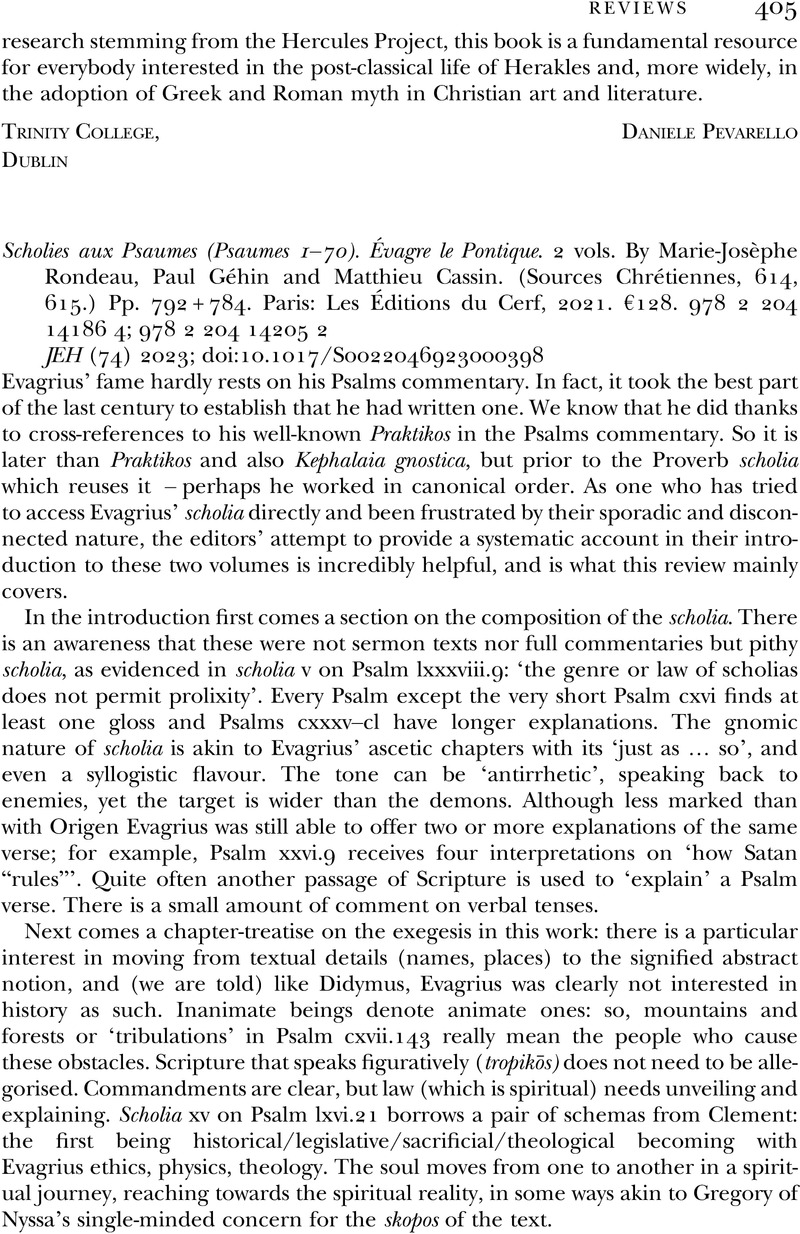No CrossRef data available.
Article contents
Scholies aux Psaumes (Psaumes 1–70). Évagre le Pontique. 2 vols. By Marie-Josèphe Rondeau, Paul Géhin and Matthieu Cassin. (Sources Chrétiennes, 614, 615.) Pp. 792 + 784. Paris: Les Éditions du Cerf, 2021. €128. 978 2 204 14186 4; 978 2 204 14205 2
Review products
Scholies aux Psaumes (Psaumes 1–70). Évagre le Pontique. 2 vols. By Marie-Josèphe Rondeau, Paul Géhin and Matthieu Cassin. (Sources Chrétiennes, 614, 615.) Pp. 792 + 784. Paris: Les Éditions du Cerf, 2021. €128. 978 2 204 14186 4; 978 2 204 14205 2
Published online by Cambridge University Press: 25 April 2023
Abstract
An abstract is not available for this content so a preview has been provided. Please use the Get access link above for information on how to access this content.

- Type
- Reviews
- Information
- Copyright
- Copyright © Cambridge University Press 2023



